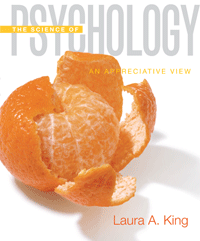| Amnesia | The loss of memory.
|
 |
 |
 |
| anterograde amnesia | memory disorder that affects the retention of new information and events.
|
 |
 |
 |
| Atkinson-Shiffrin theory | The view that memory storage involves three separate systems: sensory memory, short-term memory, and long-term memory.
|
 |
 |
 |
| autobiographical memory | A special form of episodic memory consisting of a person's recollections of his or her life experiences.
|
 |
 |
 |
| connectionism (parallel distributed processing [PDP]) | The theory that memory is stored throughout the brain in connections between neurons, several of which may work together to process a single memory.
|
 |
 |
 |
| decay theory | Theory stating that when something new is learned, a neurochemical memory trace is formed, but over time this trace tends to disintegrate.
|
 |
 |
 |
| Elaboration | Extensiveness of processing at any given level of memory.
|
 |
 |
 |
| Encoding | The process by which information gets into memory storage.
|
 |
 |
 |
| episodic memory | The retention of information about the where, when, and what of life's happenings.
|
 |
 |
 |
| explicit memory (declarative memory) | The conscious recollection of information, such as specific facts or events and, at least in humans, information that can be verbally communicated.
|
 |
 |
 |
| flashbulb memory | The memory of emotionally significant events that people often recall more accurately and vividly than everyday events.
|
 |
 |
 |
| implicit memory (nondeclarative memory) | Memory in which behavior is affected by prior experience without that experience being consciously recollected.
|
 |
 |
 |
| interference theory | Theory stating that people forget not because memories are lost from storage but because other information gets in the way of what they want to remember.
|
 |
 |
 |
| levels of processing | The idea that coding occurs on a continuum from shallow to deep, with deeper processing producing better memory.
|
 |
 |
 |
| long-term memory | A relatively permanent type of memory that stores huge amounts of information for a long time.
|
 |
 |
 |
| Memory | The retention of information over time the processes of encoding, storage, and retrieval.
|
 |
 |
 |
| Mnemonics | Specific visual and/or verbal memory aids.
|
 |
 |
 |
| motivated forgetting | An act of forgetting something because it is so painful or anxiety-laden that remembering it is intolerable.
|
 |
 |
 |
| Priming | A type of implicit memory process involving the activation of information that people already have in storage to help them remember new information better and faster.
|
 |
 |
 |
| proactive interference | Situation in which material that was learned earlier disrupts the recall of material learned later.
|
 |
 |
 |
| procedural memory | Memory for skills.
|
 |
 |
 |
| prospective memory | Remembering information about doing something in the future.
|
 |
 |
 |
| Retrieval | The memory process of taking information out of storage.
|
 |
 |
 |
| retroactive interference | Situation in which material learned later disrupts the retrieval of information learned earlier.
|
 |
 |
 |
| retrograde amnesia | A memory disorder that involves memory loss for a segment of the past but not for new events.
|
 |
 |
 |
| retrospective memory | Remembering the past.
|
 |
 |
 |
| Schema | A concept or framework that already exists at a given moment in a person's mind and that organizes information and provides a structure for interpreting it.
|
 |
 |
 |
| Script | A schema for an event.
|
 |
 |
 |
| semantic memory | A person's knowledge about the world.
|
 |
 |
 |
| sensory memory | Information from the world that is held in its original form only for an instant, not much longer than the brief time it is exposed to the visual, auditory, and other senses.
|
 |
 |
 |
| serial position effect | The tendency for items at the beginning and at the end of a list to be recalled more readily than those in the middle of the list.
|
 |
 |
 |
| short-term memory | A limited-capacity memory system in which information is retained for only as long as 30 seconds unless strategies are used to retain it longer.
|
 |
 |
 |
| Storage | Retention of information over time and the representation of information in memory.
|
 |
 |
 |
| tip-of-the-tongue phenomenon (TOT state) | The "effortful retrieval" that occurs when people are confident that they know something but cannot pull it out of memory.
|
 |
 |
 |
| working memory | A three-part system that temporarily holds information as people perform cognitive tasks. Working memory is a kind of mental "workbench" on which information is manipulated and assembled to help individuals perform other cognitive tasks.
|





